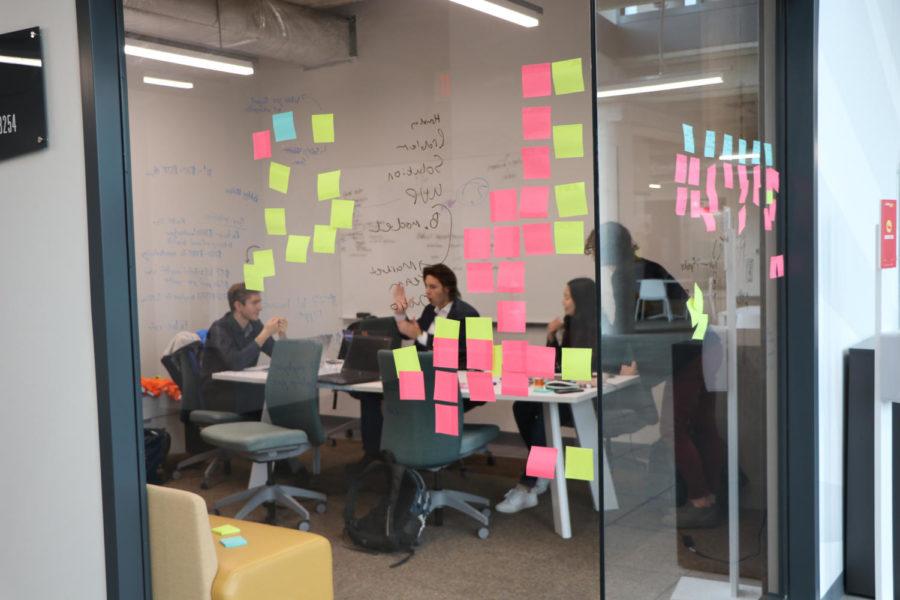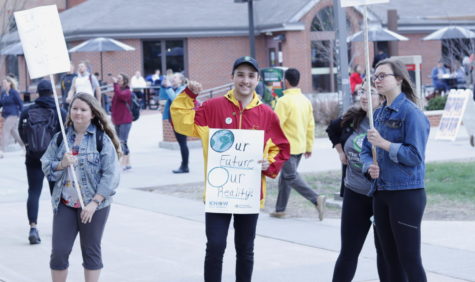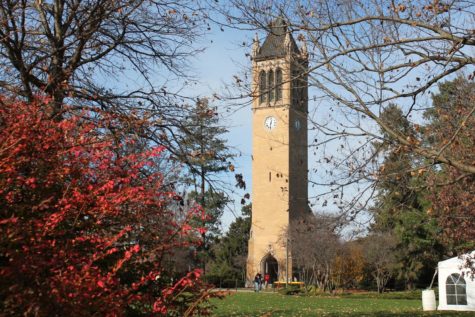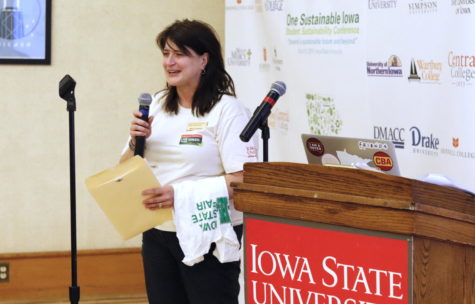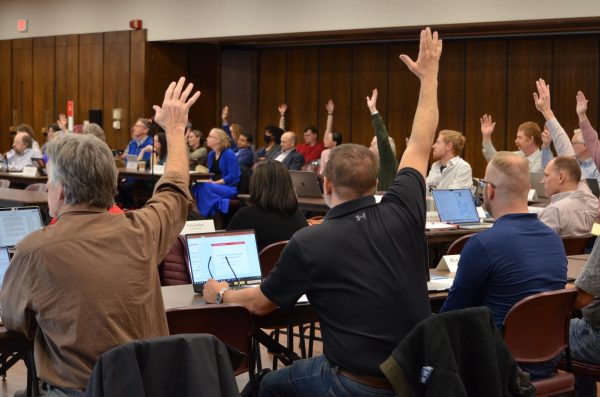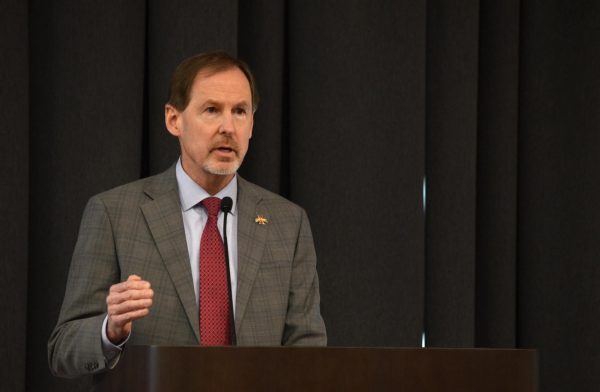Teams highlighted at Innovation Prize competition
November 14, 2021
Iowa State held the annual Innovation Prize last weekend, giving away $6,000 in prizes to some innovative participants.
The event took place at the Student Innovation Center, starting Friday night, where participants created their teams and got started on their ideas. The competition then continued through Saturday with lots of work time and final presentations of pitches.
The competition asked participants to come up with solutions to one of three categories of world problems. The categories were Edtech, where participants addressed issues in education and came up with new ideas on how to teach people, Agtech, where participants dealt with issues in the world of agriculture and Global Impact, where participants took broad approaches to solving issues like poverty or world hunger.
The competition was funded by the ISU Pappajohn Center for Entrepreneurship, and the Agricultural Entrepreneurship Initiative.
The competition consisted of about 30 participants, mostly Iowa State students, but also recent graduates and members of the entrepreneurial or innovative community. The event began at 5 p.m. on the Steppatorium when Kerty Levy, managing director of Techstars, introduced herself and some of the staff from the ISU Pappajohn Center for Entrepreneurship who were helping to run the event.
Levy explained what the competition would look like, then jumped right into the innovation with a warm up series of pitches. All participants were encouraged to come down and pitch anything, whether it be an idea they wish to pursue in the competition or issues as trivial as the wind. The early pitches gave participants a chance to get to know each other and start building teams on already established ideas and characteristics.
Once nearly everyone at the competition had shared their ideas or problems to address, a brief pizza social gave participants a chance to chat before getting into teams.
The team formation went off without a hitch, despite the minimal structure to the gathering. Participants put their ideas up on the wall and naturally began to congregate around the best ideas.
Somehow, six mostly-even teams came out of the mingling sessions, split evenly between the three challenges and all consisting of enough teammates to split the workload with. Each team had two to four participants, a mixed bag of diverse thinkers. Levy commented on the team’s formation.
“And so many of these founder’s stories, It’s like, they say, ‘you know, it’s just I sat in the bar with my friend and we started riffing on this idea’. And they were like, ‘Oh my God, this is something,’” Levy said. “You know, companies start in all kinds of ways. Sometimes they’re people who are working in the same company and they see something wrong. And so part of the lack of structure is team’s form without structure.”
After forming teams, participants were left to work together and put their ideas together, reworking the original pitches to become as flushed out and as thorough as possible.
On Saturday, teams congregated once again to resume working on their ideas. Throughout the day participants were able to consult the Pappajohn staff at the event as well as some guest mentors who could offer expert advice to the teams of innovators.
Teams worked up until the last moments before final presentations, rehearsing their pitches and refining their ideas before the pitch. Tensions were high, with so much money on the line participants really put all they had into their pitches, which resulted in an extremely nervous yet excited vibe being shared by most of the competition.
Teams presented in random order, starting with a group who wanted to create digital books organized and visualized into a map of different topics and chapters. The groups hope was that their system would allow students to draw greater understanding from the books they tend to neglect. Second was a group hoping to popularize a new method of heart surgery which would replace open heart surgery with a much safer option.
Third was a group that wanted to create a digital space for people to mentor and coach each other on a variety of topics and issues.
The fourth group to present wanted to create an app to help decode the language of people who suffer from aphasia, allowing them to communicate their most basic needs. Fifth was a group that hoped to create a program that would prepare students for college, by exposing them to the vast possibilities that await them, hopefully preventing them from changing majors halfway through college. The final group to present offered a way to reduce workplace accidents by using RFID chips to force employees to use things like harnesses and other safety equipment.
After all groups had presented, Levy announced that the top three groups would receive a $1,500 award, but also that the three groups who did not win would each receive a $500 dollar award just for the spectacular effort. With this announcement in everyone’s heads, the judges retired to an office to discuss which teams should take home the big prizes.
After about 15 minutes of deliberation, the judges came out to announce the winners of the competition. In no particular order the winners were the fourth, fifth and sixth groups to present. Judges accredited their decisions to the quality of the pitch, as well as the quality of the central idea and the feasibility of it.
Groups were clearly ecstatic to have completed the challenge, with all groups walking away with some amount of winnings, it would have been hard to be disappointed with the outcome of the competition.
A participant from the sixth team to compete and a Sophomore majoring in Aerospace Engineering, Phillip Gorni offered his take on his team’s performance.
“We were all very scraped together in the morning,” Gorni said. “But everyone put their heads down really focused with and with the support of other mentors guiding us into how we can optimize a presentation. That really gave us the boost to really seal the deal and really win the competition.”
One member from the fifth team to compete, Brynn Sweere, a graduate student studying apparel, events and hospitality management, commented on the value of the competition.
“I think anytime that you get the opportunity to speak in front of people, is an opportunity that you shouldn’t give up, you can learn a lot,” said Sweere. “And again, I think we all learned each other’s strengths and weaknesses and played on those. You learn from that every time.”
Another member from a winning team, Brandon Rockow, a seasoned entrepreneur, offered his take on the role that teamwork played in the competition.
”Teams, and especially like, newly formed teams are extremely difficult,” Rockow said. “I just tried to get everyone’s opinion. So we’re all contributing to something instead of, like, one team member controlling everything.”

